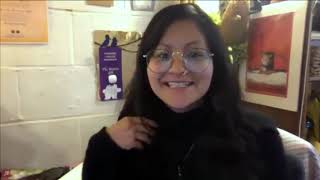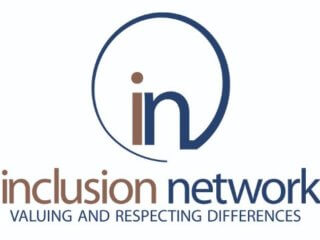 Image: Blog hero Plant Plate 09 boys dig in
Image: Blog hero Plant Plate 09 boys dig in
Preeti Yonjon: cultivating inclusion in Alexandria

by Jennifer Bevis Posted in Rural Capacity Building, Tools You Can Use
Homogenous.
That pretty much summed up Preeti Yonjon’s impression of her new hometown, Alexandria, when she arrived in 2016.
She wondered where the black and brown people were in town. (In a community of a little over 14,000, of whom 94 percent are white, it’s a fair question.)
She knows where, now. And she’s working with a team on a project to make the knowledge, experience and life stories of more Alexandria residents heard and seen.
Discovering safe space
Members of Alexandria’s Inclusion Network offered Preeti a warm welcome – something this all-volunteer group has been doing since 2003, in its mission to make the community an inclusive and welcoming place for people of all backgrounds to live and work. While wrapping up her master’s degree in gerontology from St. Cloud State University and began work for The Written Gift, a non profit in Alexandria, she recalls, “Inclusion Network was the only organization that I could really feel at home.”
Soon, the network tapped her expertise for a demographic study of Alexandria community members’ racial experiences and expectations that surfaced two community needs, for both White and BIPOC (Black, Indigenous and People of Color) community members.
Lifting all voices
Participating in the 2018 Alexandria cohort of Blandin Community Leadership Program (BCLP) reinforced the community needs identified in the study.
She brought back her experience and learnings from the program, strengthening and building relationships to foster and create safe space for all.
Soon, the network tapped her expertise for a demographic study of Alexandria community members’ racial experiences and expectations that surfaced two community needs, for both White and BIPOC (Black, Indigenous and People of Color) community members.
From this, Voices emerged.
Season 1 of the “Voices Talk Show” pooled existing community resources and expertise. Josette (Jo) Ciceron is the creative editor, plans discussions on topics such as white fragility and allyship, and hosts the show. Inclusion Network member Scott Keehn directed Voices season 2. Yonjon, along with IN’s support, wrote grants, securing $5,000 from Blandin Foundation and West Central Initiative Foundation. She and other Inclusion Network board members, along with community members, have shared on the show their experiences living in a predominantly White community, and the skills and perspectives White community members need to build a more welcoming, equitable, community.
“So it’s been an amazing experience,” she said. “We’re in this together, and it’s been a wonderful journey.”
A journey the group engages the community in beyond Voices. The network offers a speakers bureau that leads community discussions and trainings on welcoming and inclusion topics. It hosts BIPOC and White co-learning groups that provide safe spaces to discuss difficult, uncomfortable topics, then meet jointly to strengthen listening skills, relationships and understanding. A third effort, Complexity Initiative potlucks, have drawn more than 50 community members for meals to discuss facets of diversity, equity and inclusion.
They kicked off Voices Season 2 in September 2020, building on what they learned, expanding relationships – and, ultimately, moving Alexandria toward being a more inclusive and welcoming community comfortable with seeing, talking about and drawing strength from difference.
Skills for Working Across Differences
Working in community with people whose viewpoints, life stories, and expertise are different from one’s own is key to being an effective leader. These four skills are a starting point to notice and explore differences among people in your community.
- Build self-awareness: Understanding your own differences and its impact on others. Uncovering your assumptions (stereotypes, misperceptions or preconceived ideas).
- Follow curiosity: Expressing and exploring areas of difference that may deepen your understanding of the other provides possible strategies for bridging the differences.
- Practice reciprocity: Mutual sharing and risk-taking balances the power dynamics by creating a co-learning relationship.
- Find common ground: Understanding and accepting commonality can never be assumed. They are either discovered, negotiated or created.
From Blandin Community Leadership Programs
Digging Deeper
Voices Talk Show
Website: https://www.inclusionnetwork.org/voices/
Facebook: https://www.facebook.com/Voices-Talk-Show-2179669842080787/
Instagram and Twitter: @voicestalkshow
9 Dimensions of Healthy Community: Inclusion
Stories, data and other resources you can use to strengthen inclusion work in your community: https://blandinfoundation.org/learn/vibrant-communities/nine-dimensions-healthy-community/inclusion/
